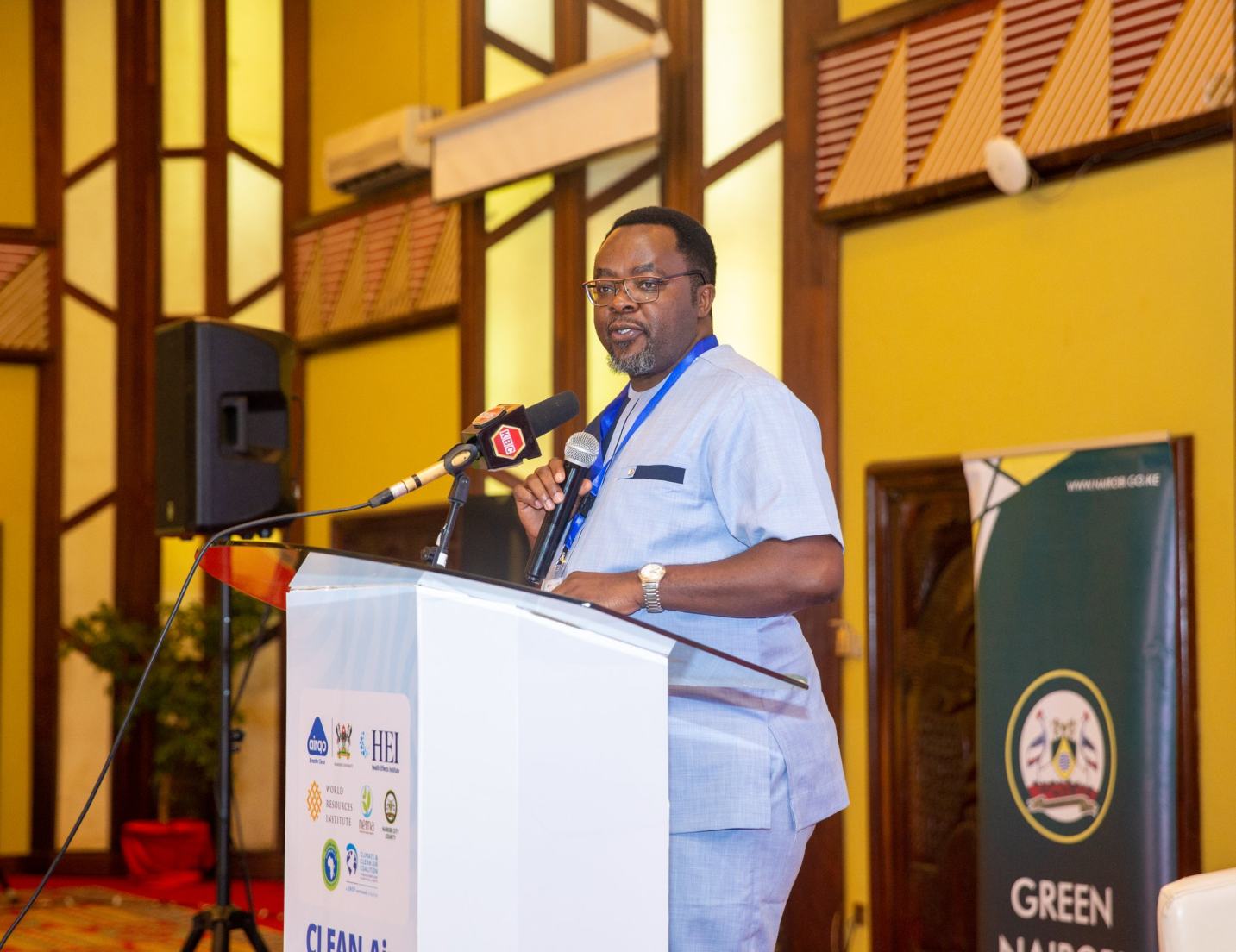Transport, hospital waste blamed for rising air pollution in African cities

World Resources Institute Country Representative for Kenya and Head of Air Quality, George Mwaniki, said emissions from vehicles remain the biggest cause of air pollution in most urban areas.
Air pollution in African cities is being driven mainly by emissions from the transport sector and the burning of hospital waste, experts have warned. These two sources have been identified as the leading contributors to poor air quality, posing serious health and environmental risks across the continent.
World Resources Institute Country Representative for Kenya and Head of Air Quality, George Mwaniki, said emissions from vehicles remain the biggest cause of air pollution in most urban areas.
“For most African cities, the number one source of air pollution is actually transport. I'm very sure you don't have to be told that transport is a major issue,” Mwaniki said.
Speaking during the Clean-Air Forum held in Nairobi on Tuesday, Mwaniki stressed that solid waste, especially medical waste, ranks second in polluting the air. He painted a grim picture of open waste burning in cities such as Nairobi, pointing to the additional dangers it presents.
“If you stand next to a major road, you'll see the kind of emissions coming from vehicles. That is the number one source of pollutants in African cities,” he said.
He warned that open burning of hospital waste raises further concerns, including the risk of antibiotic resistance and the burning of biomedical materials, which often contain dangerous substances.
“It raises issues of potential antibiotics. If you're burning medicine, there are issues on how that affects antibiotic resistance in the environment. And also, it's actually quite not very nice when you learn that what you're breathing was somebody's limb that was cut somewhere,” Mwaniki said.
He noted that while some of these concerns were previously overlooked, they are now receiving more attention due to their wider implications beyond just pollution.
“These are real issues. We are realising some of the things we never thought were a big issue in the air pollution space are big issues that go beyond air pollution.”
Mwaniki emphasised the urgency of tackling air pollution before it worsens and said collaboration with key institutions is underway to find lasting solutions.
“We are collaborating with the Nairobi City County and working closely with UNEP to prioritise air pollution as one of the areas needed to be tackled.”
He pointed out that two- and three-wheeled vehicles are among the highest contributors to urban pollution, not only in Kenya but also in other African countries such as Uganda and Rwanda.
“In Kenya, there's a big initiative to do that shift, especially for two and three-wheelers. For two and three-wheelers, those are some of the biggest polluters in our cities. In Uganda, you're seeing the same,” he said.
“We are seeing the same in Rwanda and other parts of the continent.”
According to Mwaniki, old vehicles still in use on Kenyan roads continue to emit thick black smoke and are a major concern. He said there is a need to support vehicle owners to move towards cleaner alternatives.
“If you're driving behind it or walking behind it, it emits some very serious black soot. We have to think about how do we also support vehicle owners to kind of do that transition. We have to think about fuel.”
He said Kenya already has air quality regulations that were gazetted by NEMA in 2014 and reviewed last year, while Nairobi County is developing specific rules to enforce them at the city level.
“The Act has passed. We have our air quality policy at the city level. Now it's moving to regulations.”
“Once we do the regulations, then we start the enforcement, and then we see whether that is leading to any improvement.”
He said Nairobi currently has about 36 air quality monitoring stations, with a mix of local sensors and advanced systems. The city is leading in the monitoring efforts due to its high pollution levels but plans are underway to expand the initiative to other cities.
“We started with Nairobi. Nairobi, you have to admit, is one of the most complex cities to kind of address those issues. If you're able to do it in Nairobi, then the other cities should be easier, and we can take some of the lessons from Nairobi to other cities,” Mwaniki said.
“But that doesn't mean nothing is happening in those four other cities. We have already established a couple of monitors with other partners, so we can actually see how those other three cities are, and which one should be a priority in supporting to addressing this challenge.”
He said cities like Nakuru, Kisumu, and Mombasa will soon benefit from similar air quality monitoring efforts, as part of a broader campaign to combat air pollution nationwide.
